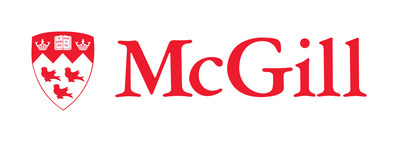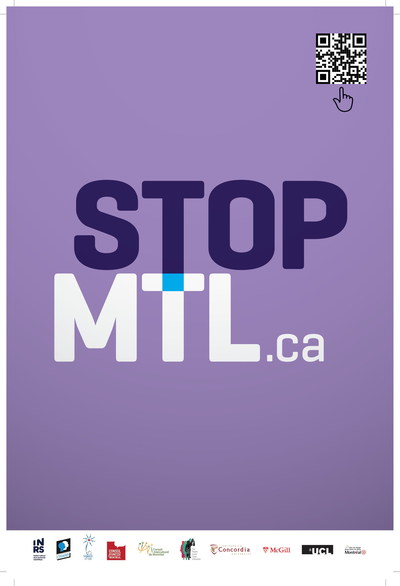INRS leads innovative open data research project to serve citizens and communities
MONTREAL, July 14, 2021 /CNW Telbec/ - Montrealers will now be able to self-report their police stop experiences through the STOPMTL.ca website. Officially launched today by a multidisciplinary research team from the Institut national de la recherche scientifique (INRS), McGill University, Concordia University and University College London, STOPMTL.ca aims at gathering detailed data to form a more accurate picture of police stops from citizens' perspective.






A unique platform for citizens to report their experiences
The STOPMTL.ca website is part of a research project that aims to produce quantitative data on the social and spatial distribution of police stops in Montreal. This is an important resource for citizens, communities and researchers, since only 5 to 20% of the police stops made are recorded by the Service de police de la Ville de Montréal (SPVM).
"We want to get a better picture of the police-citizen relationship, because it is an important social issue. This research and citizen science project will rely entirely upon 100% open data," says the project's lead researcher, Carolyn Côté-Lussier, who is a professor of urban studies at INRS and a researcher at the International Centre for Comparative Criminology.
People aged 15 and over will be able to report any police stop experience on the day it happened, but also police stops that happened months or even 20 years ago, using an anonymous form. Each user will be able to indicate how and where the stop took place, give the context, specify their age, gender, ethnic or racial group, and their activity or means of transportation during the stop.
The entire project will be open access, which means all data will be accessible and downloadable by anybody who wants to use it.
Addressing community and scientific needs
In 2019, an independent report commissioned by the City of Montreal demonstrated racial and social profiling by the Service de police de la Ville de Montréal (SPVM) targeting Black, Arab and Indigenous people, and young adults in particular. According to the data, Indigenous and Black people are four to five times more likely to be stopped by police than White people.
"Community organizations do not have access to SPVM data and their claims are often not taken seriously because they do not have the numbers to back them up," says Professor Côté-Lussier. "This is a need that has been expressed repeatedly by community organizations since the 1980s."
STOPMTL.ca is currently supported by the First Peoples Justice Center of Montréal, the Center for Research-Action on Race Relations, Maison d'Haïti, the Conseil Interculturel de Montréal, the Conseil Jeunesse de Montréal, as well as the Borough of Côte-des-Neiges-Notre-Dame-de-Grâce.
"This project will provide much needed information for citizens, as well as police, as it will provide a visual representation of the so-called hot spots where most citizen-police stops occur and could result in meaningful police-citizen conversations based on evidence rather than hearsay," explains Myrna Lashley, assistant professor in the department of psychiatry at McGill University. "The results of this study could assist policy makers and politicians to determine in which geographical areas to best invest resources, thus better meeting the needs of citizens."
The team's scientific objectives are to produce a report on the project and on the validity of the data. In addition, the data from STOPMTL.ca will contribute to ongoing research on the impact of crime in general (victimization, police presence, sense of security) on mental health and quality of life indicators such as mobility in neighbourhoods.
"Our environment has a large impact on our physical and emotional health and well-being. But if our existing data represent only a small portion of the story, our current understanding is limited and narrow in scope. This project is the first step to expanding our worldview and filling in some of those gaps," says Lisa Kakinami, associate professor in the Department of Mathematics and Statistics in collaboration with the PERFORM Centre, and affiliate faculty member of the Department of Health, Kinesiology and Applied Physiology at Concordia University.
Professor Côté-Lussier adds that the participation of Montrealers is fundamental for this project to succeed and stresses that the data will benefit both "researchers and the broader community".
This project is a multidisciplinary collaborative work between researchers: Carolyn Côté-Lussier (Lead Investigator, Institut national de la recherche scientifique), Myrna Lashley (McGill University), Jason Carmichael (McGill University), Ben Bradford (University College London, UK), Lisa Kakinami (Concordia University) and Marie-Soleil Cloutier (Institut national de la recherche scientifique).
About INRS
INRS is a university dedicated exclusively to graduate level research and training. Since its creation in 1969, INRS has played an active role in Québec's economic, social, and cultural development and is ranked first for research intensity in Québec and in Canada. INRS is made up of four interdisciplinary research and training centres in Québec City, Montréal, Laval, and Varennes, with expertise in strategic sectors: Eau Terre Environnement, Énergie Matériaux Télécommunications, Urbanisation Culture Société, and Armand-Frappier Santé Biotechnologie. The INRS community includes more than 1,500 students, postdoctoral fellows, faculty members, and staff.
About McGill University
Founded in Montreal, Quebec, in 1821, McGill University is Canada's top ranked medical doctoral university. McGill is consistently ranked as one of the top universities, both nationally and internationally. It is a world-renowned institution of higher learning with research activities spanning two campuses, 11 faculties, 13 professional schools, 300 programs of study and over 40,000 students, including more than 10,200 graduate students. McGill attracts students from over 150 countries around the world, its 12,800 international students making up 31% of the student body. Over half of McGill students claim a first language other than English, including approximately 19% of our students who say French is their mother tongue.
About Concordia University
Concordia is a next-generation university, continually reimagining the future of higher education. Located in the vibrant and multicultural city of Montreal, Concordia is the top-ranked university in North America founded within the last 50 years and among the most innovative in its approach to experiential learning and cross-functional research.
The university annually registers 51,000 diverse and engaged students, including over 10,000 international students from some 150 countries, in its Faculty of Arts and Science, John Molson School of Business, Gina Cody School of Engineering and Computer Science and Faculty of Fine Arts and in Concordia Continuing Education.
SOURCE Institut National de la recherche scientifique (INRS)

Source : Julie Robert, Service des communications de l'INRS, 514 971-4747, [email protected]
Share this article